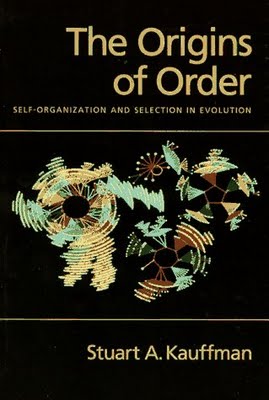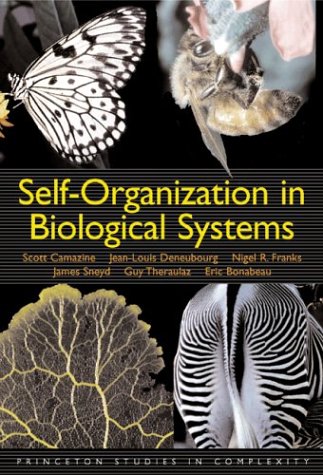Ask Ray | Science and God
March 21, 2011 by Ray Kurzweil

(credit: stock)
Hi Ray,
It was nice to see you again at the Transcendent Man film screening. I enjoyed the movie and the discussion. The way I see it, over time we have been discovering the intelligence that is manifested in nature. This intelligence is much greater than our own — however, piece by piece, we have been stitching it together.
The point is that we have been making these discoveries at an ever-accelerating pace and in 40 years we will discover God!
Warmest regards,
John
John,
That’s a very thoughtful way to put it. So you agree with my final thoughts in the movie. I would put the discovering God part a little later in this century, but that’s a detail.
All the best,
Ray
Ray,
Since I was 13, I’ve thought that religion isn’t a serious way of discovering God. I stumbled through life to find science (eventually physics) as a possible route to understanding the marvelous wonder that nature presents to us. It is because we are a part of nature that we have this unique opportunity to unravel the mysteries of life and existence. It’s really a true romantic adventure.
Curiously enough, science and religion both were created at the same time as a result of an emotional reaction to this amazing grand design. They just took different routes to discovering God. Now science and technology will get us to a point where we will have a better understanding of what God really is. You have made a profound contribution to the path to this understanding. I hope people appreciate this.
Best,
John
John,
No one can dispute that ideas about God and spirituality reside in our brains even if one feels that their origin transcends and precedes human thought. Science is supposed to describe reality, so if we regard spiritual thoughts as real, there is no reason why science cannot provide us with a deeper understanding of them.
— Ray
Ray,
Insightful and true!
— John
I have been thinking about self-organization and how pervasive it is in the universe. We generally associate this with biological systems, but I believe that there are examples in physical science. For example, I believe the periodic table is an example of this as well as the shell model of the nucleus, the quark model, etc.
What are the underlying principles which give rise to this? They are the existence of discrete energy levels, the principle of indistinguishability (you cannot distinguish identical particles in quantum mechanics) and the Pauli Principle, which is deeply rooted in the spin statistics theorem in quantum field theory. You can explain all of this self-organization based upon these three facts of life.
Furthermore, chemical bonding also follows from these principles — so my guess is one can make sense out of biological self-organization, as well, from these principles. Could self-organization have a deeper meaning than even this?
Some have speculated that self-organization also applies to space-time. If you think of space-time as made up of 4 dimensional volume elements and you make up space-time from these through a Monte Carlo simulation you find that the universe is infinite dimensional.
However, if you require that the time axes of these volume elements be stitched together according to the causal axis of time, then space-time is 4 dimensional. In this approach, space-time is smooth down to the Planck mass, and below that it becomes infinite dimensional. So causality, if assumed, leads to this description of space-time as a self-organizing system. In other approaches to space-time, such as Hawking’s, the goal is to derive causality as a consequence of a theory of space time.
Anyway, I believe that self-organization may be a fundamental property of the universe, and we may be getting closer to understanding the fundamental principles that govern this phenomenon.
— John
John,
 Those are some interesting reflections on self-organization and emergent properties. Laws on one level arise from emergent properties on a lower level.
Those are some interesting reflections on self-organization and emergent properties. Laws on one level arise from emergent properties on a lower level.
Consider thermodynamics, which models the inherent unpredictability of molecular movement in a gas but nonetheless results in “laws” that are surprisingly predictive to a very high degree of accuracy.
As an interesting aside, the evolution of intelligent systems is not inconsistent with the second law which implies increasing entropy (actually, it implies no decreases in entropy). One of the enabling factors for evolution, therefore, is sufficient chaos to provide the choices for evolutionary progress.
Incidentally, my law of accelerating returns is similar to thermodynamics in this regard, in that the inherent unpredictability of individuals and individual projects nonetheless gives rise to a predictable phenomenon in terms of the smooth exponential increase in basic measures of price-performance and capacity.
The key enabling factor in our universe that allows evolution at any level is the ability to encode information. Fairly simple rules can then result in substantial self-organization.
Wolfram showed how a simple cellular automata rule can result in many of the patterns we see in nature.
Subatomic particles can encode information, and organize into atoms and the repetitive properties of the periodic table, as you point out. Atoms organized into molecules provide rich opportunities for encoding information — especially the carbon atom, which can form connections in four directions. This gave rise to biology with information encoded in a particular molecule, DNA.
The evolution of organisms (as guided by DNA) gave rise to structures such as nervous systems and brains that could encode information in neural structures. Those brains combined with an opposable appendage gave rise to tools and the evolution of technology with information encoded in the tools, most notably computers.
We are now in what I call the fifth epoch, in which we are unlocking the secrets of biology and using these biologically inspired paradigms to guide our technology.
 How did the universe first adopt this ability to encode information? Some people have hypothesized an evolutionary process of universes. Those that failed to encode information never evolved anything interesting and thus either die out or just remain boring universes.
How did the universe first adopt this ability to encode information? Some people have hypothesized an evolutionary process of universes. Those that failed to encode information never evolved anything interesting and thus either die out or just remain boring universes.
There are various versions of the anthropic principle to explain how we got here. For example, if we didn’t live in such a universe, we wouldn’t be here talking about it.
You mention an infinite dimensional space from which our 4 dimensional space-time is an emergent feature. I can imagine n dimensional spaces and that is only because of our powers of analogy. The novel Flatland, describing a two dimensional spatial world, did a good job of illustrating that analogy. I have difficulty imagining an infinite number of dimensions.
For one thing, that would require an infinite amount of information to specify one point (unless there were rules that limit the amount of information as we see in quantum mechanics).
— Ray
